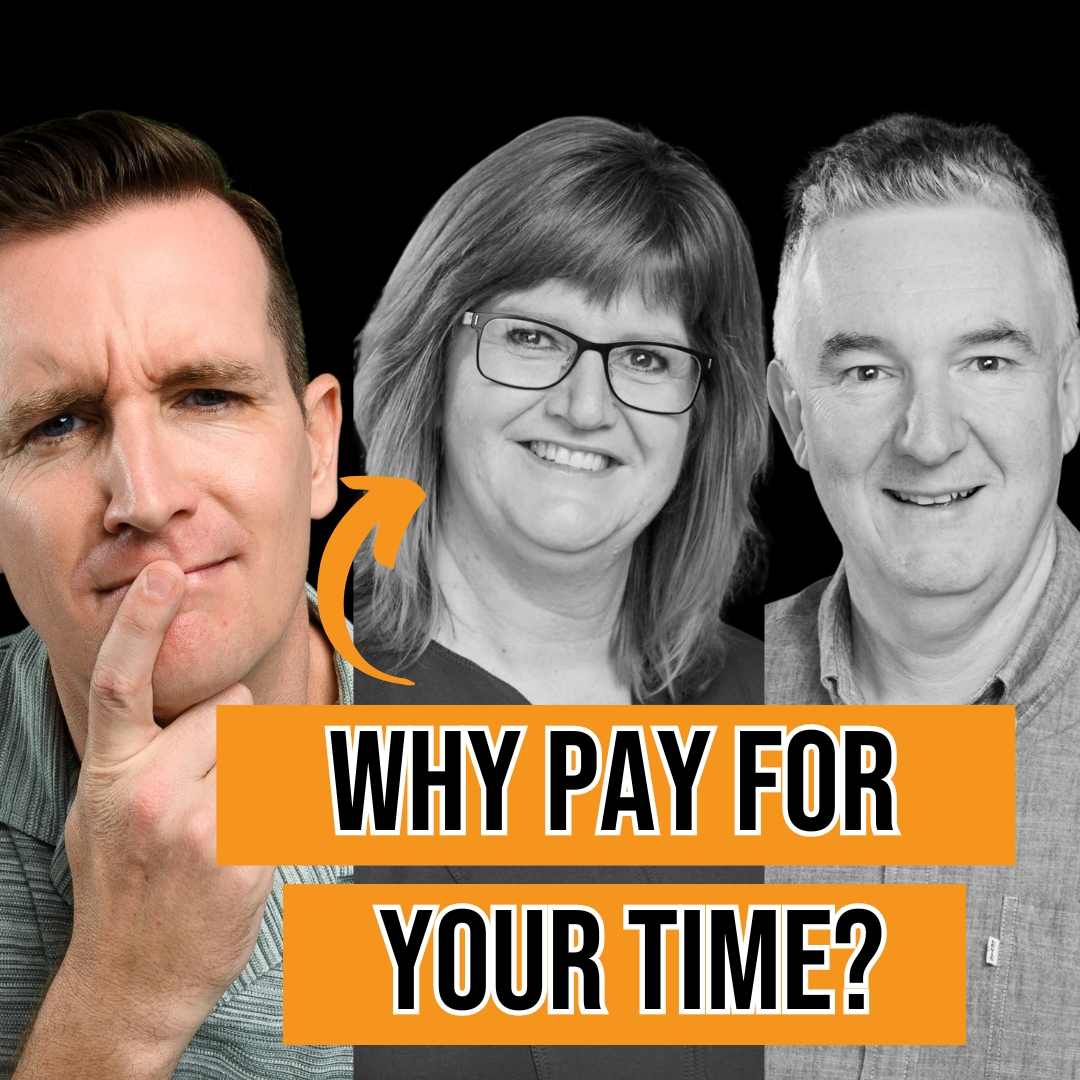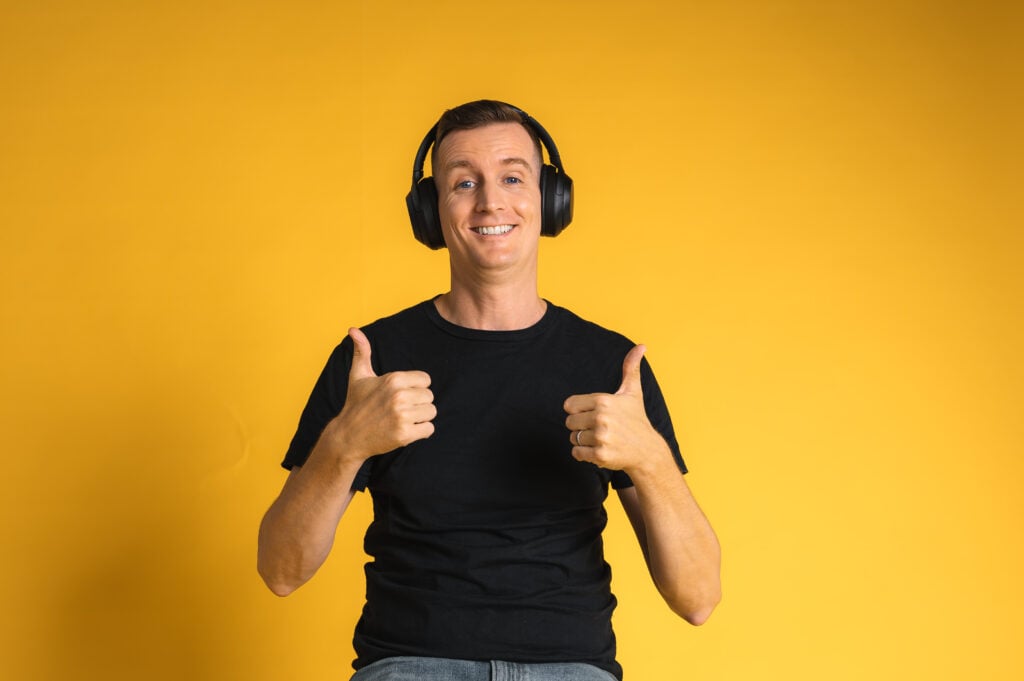My name is Niall Mackay, the Podcast Guy. I am the host of this show, Smarter Podcasting, to share valuable insights and expert tips about producing, editing, and promoting your podcast.
This time, I was joined by Jenny and Nick Cliff, long-time IT professionals now based in Bali. Their show was born from a desire to give back, to ask smarter questions, and to shine a light on what good service really looks like in the tech world.
We talked about why they started a podcast to share real stories from the tech world, how they’re using it to give back—not sell—and what they’ve learned along the way.
The Power of Real Stories Over Advice
One thing that really stuck with me in this conversation was something Jeni said: people don’t want advice—they want stories. And she’s absolutely right.
Too often in business (and podcasting), we try to teach by giving tips, steps, or how-tos. But what people connect with most are real experiences. Times when things went wrong, or almost went wrong, and how you got through them. Those are the stories that stay with people.
Jeni and Nick built their podcast around what she called the “hero story.” They ask each guest to share a time when they stepped in and made a difference for a client, especially in moments of chaos. It’s not about showing off. It’s about showing how you actually helped, what you learned, and what others can learn from that, too.
That kind of storytelling creates trust. It shows the guest’s real personality and experience. And for a business podcast, that’s gold. It builds a connection with the listener in a way that lists and lessons just can’t.
It also shaped how I think about podcasting in general. If you want your business podcast to work, don’t try to lecture your audience. Invite your guests to tell their best stories—and let the lessons come through naturally.
Why They Started a Podcast
Jenny and Nick are at a stage in life where they’re not trying to grow a business—they’ve already done that. They built and sold a successful IT company and now live in Bali. But they’re not really retired. Instead, they’re focused on giving back to their industry.
At first, they thought about writing a book. They’ve got years of experience helping IT service providers improve their businesses, especially with the EOS (Entrepreneurial Operating System). But writing a book felt too big to start with, so they turned to podcasting.
A podcast gave them a way to start sharing stories right away. It let them talk to people they respected, ask smart questions, and collect real-life examples of what good customer service looks like in tech. Over time, those stories can still become a book. But the podcast became the perfect place to start.
What I loved hearing was that their show didn’t just help them—it inspired others too. One of their guests was so fired up after being on the show that he went and built a podcast studio in his own office. That’s the ripple effect of doing something with heart.
For Jenny and Nick, the podcast isn’t about sales. It’s about sparking better conversations and sharing what they’ve learned in a way that’s personal and practical.
Doing It Yourself vs. Hiring a Producer
When Jenny and Nick first decided to start a podcast, their plan was to do it themselves. Nick’s from a tech background, so he figured it couldn’t be that hard—just some mics, software, and a bit of editing. But like so many people I’ve spoken to, he quickly fell into the YouTube rabbit hole. The deeper he went, the more complicated it got.
He told me how overwhelming it became—figuring out which tools to use, how to record properly, what editing software to pick, how to structure the files… all of it. At one point, he even said, “Bugger it, I’ll just do it myself.” But eventually, he realized it was eating up way too much time, and he still wasn’t getting the results he wanted.
That’s when they decided to work with Seven Million Bikes. They handed the production over to us, and suddenly everything got easier.
As Jeni put it perfectly: “We send the files and get them back sounding amazing.”
For them, outsourcing wasn’t just about getting a polished product—it was about saving time, reducing stress, and being able to focus on what they’re best at: having meaningful conversations.
That’s a lesson I always share with podcasters. Your time is valuable. If you’re spending hours trying to learn editing or production from scratch, it’s worth asking if that’s the best use of your energy, or if someone else can help you do it better.
Related post: Why Outsource Podcast Editing: 10 Reasons to Hire a Podcast Editor
The Hidden ROI of Podcasting
One of the biggest myths about podcasting is that you need millions of listeners or big sponsorship deals to see a return on investment. That’s not true—and Jenny and Nick are a perfect example of that.
They didn’t start their podcast to generate leads or close sales. Their goal was to share stories, give back, and build a conversation around customer service in IT. But what’s interesting is that, even without trying, the leads are already starting to come. People are listening, reaching out, and wanting to connect.
For most of the clients I work with, that’s where the real ROI comes from. It’s not always about direct revenue. It’s about relationships, reputation, and reach. When you share your voice consistently and authentically, people start to trust you. They remember you. And when the time comes, they reach out—whether that’s to work with you, refer someone else, or collaborate in another way.
I often describe it as a “white glove” experience in marketing. It’s high-touch, high-value, and long-term. Podcasting shows that you care enough to do things properly—and that stands out in a world full of noise.
So even if you’re not chasing numbers or monetization right away, don’t underestimate what a podcast can do. Sometimes the best ROI is the one you didn’t expect.
Conclusion
Podcasting isn’t just a way to market your business—it’s a way to build something meaningful.
Jenny and Nick reminded me that you don’t always need a clear business goal to start a podcast. Sometimes, you just need a purpose. Their show was born from a desire to give back, to ask smarter questions, and to shine a light on what good service really looks like in the tech world.


